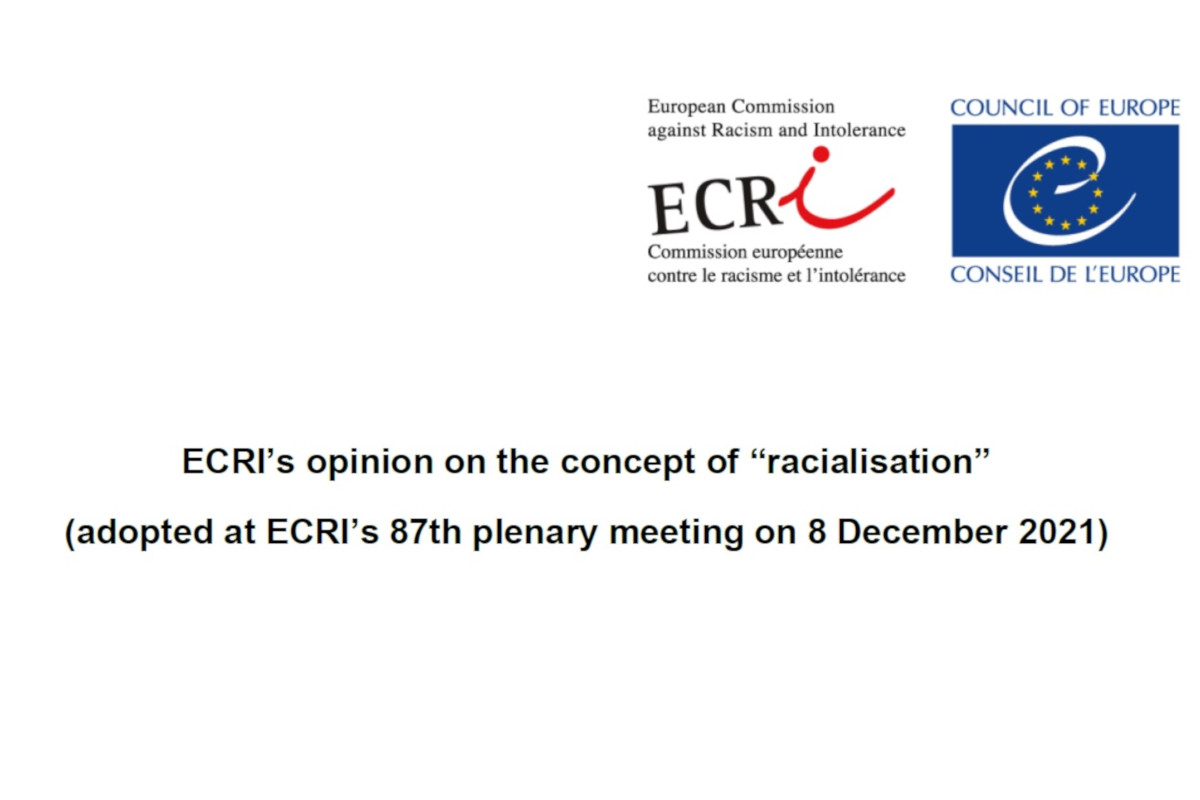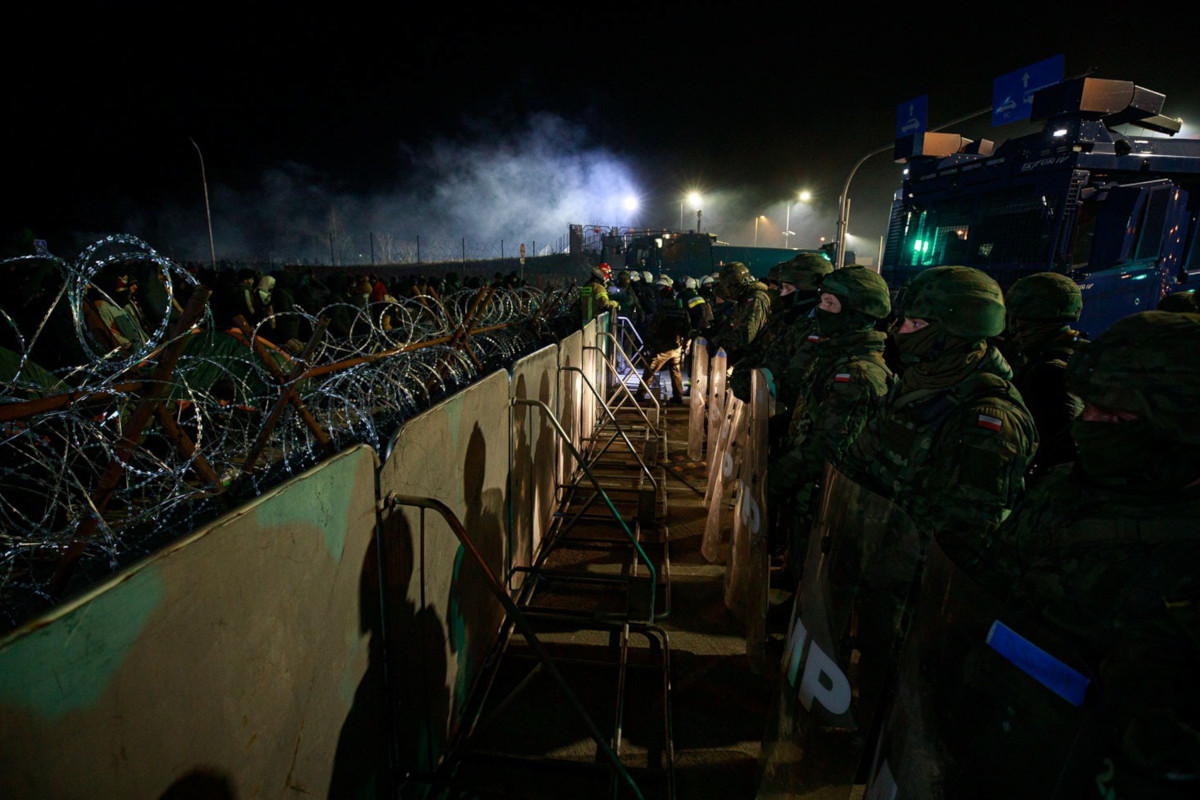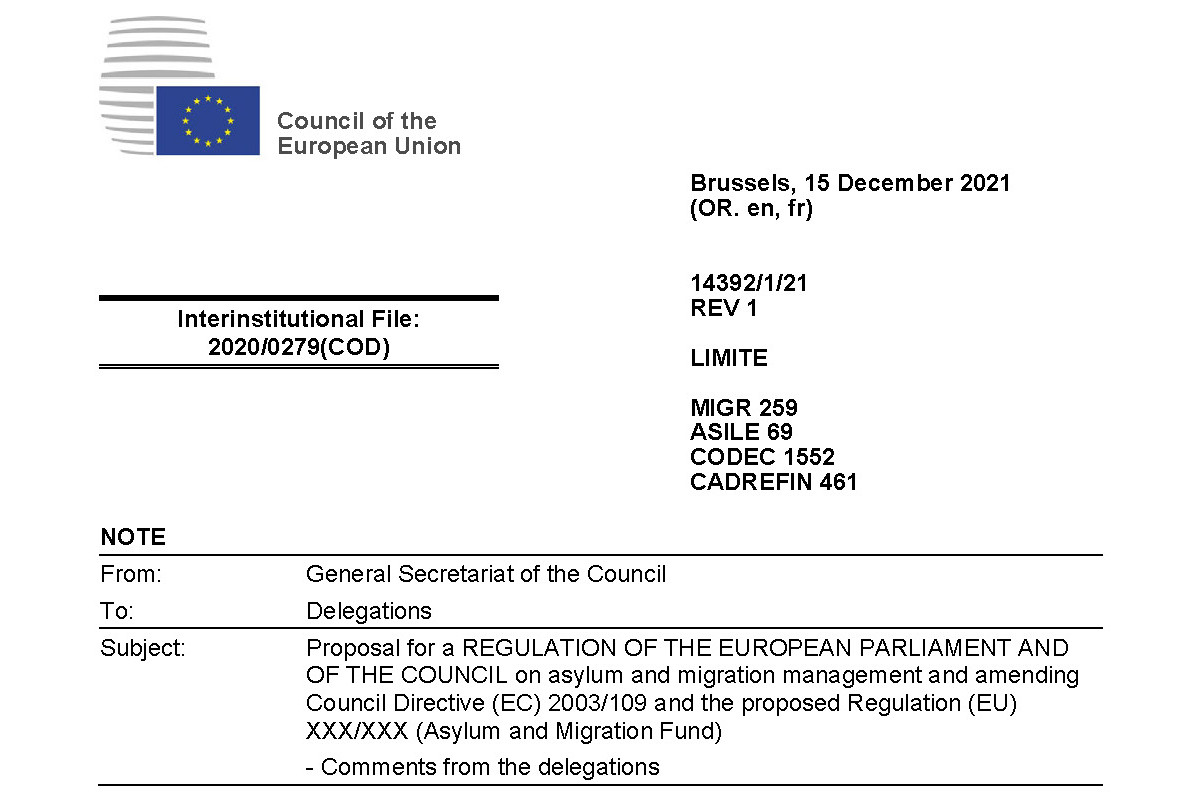European Commission against Racism and Intolerance: opinion on the concept of "racialisation"
Topic
Country/Region
16 December 2021
"The use of the concept of “racialisation” has the potential to aid understanding of the processes underpinning racism and racial discrimination and to ensure that the voices of racialised groups are heard and taken into account, in particular in the areas of awareness-raising, education and policy making."
Support our work: become a Friend of Statewatch from as little as £1/€1 per month.

Originally published by the European Commission on Racism and Interolance here.
ECRI's opinion on the concept of "racialisation"
1. Scientific evidence demonstrates that so-called human races as biologically distinct groups do not Theories according to which the human species is composed of distinct “races” have also been widely rejected. ECRI recalls in this respect that all human beings belong to humankind and are equal in dignity and rights.
2. The common understanding that “races” are purely based on socially constructed ideas, not personal biological characteristics, prompted various initiatives aimed at deleting references to “race” as a ground for discrimination in existing constitutional or other legal provisions in some Council of Europe member states. Whilst understanding the rationale behind such initiatives, ECRI considered it important to keep the ground of “race” in the list of grounds falling within its mandate in order to ensure that all persons who are generally and erroneously perceived as belonging to “another race” are not excluded from the protection provided for by law and other standards. This approach is consistent with key international human rights treaties, notably the European Convention on Human Rights in its Article 14 on the prohibition of discrimination and Protocol 12 thereto, which include race as a prohibited ground. At the same time, ECRI decided to make it clear in its adopted texts that references to “race” do not correspond to any existing personal biological characteristic. [1]
3. Against this background, ECRI has observed that the concept of “racialisation” has been increasingly used during the recent period. According to its proponents, it provides for an insight into the social and ideological processes that develop the stereotyping and reductive understanding of diverse human identities in racial terms as an exercise of power. In their view, human populations (identified by, for example, phenotype or cultural identifiers) are ascribed – through a process of racialisation – certain characteristics and attributes that are presented as being innate to all members of each group concerned. Regardless of where one is from and of personal circumstances, once identified or perceived as a member of a group, one is deemed as embodying characteristics based on, for instance, skin colour, ethnic or national origin or religion inherent to all members of that group. This process is therefore described as turning a diverse set of people into an allegedly homogeneous group, whose members are presented as “Other”.
4. This approach, which was at times wrongly presented as a potential alternative to the use of the term “race”, has not always gone unchallenged. Some critics argued that it left too much room for misuse, and that as such it would tend to be used to describe societies simplistically as being divided between on the one hand groups of victims (“racialised” groups) and on the other hand groups in dominating positions or abusive institutions, with the latter groups or institutions presumed to “racialise” the former, be it intentionally or unintentionally. In response, those advocating in favour of a wider use of the concept consider that it is instrumental in shedding light on the social and ideological processes that underpin structural or institutional racism and racial discrimination.
5. In the light of the above considerations, ECRI is convinced that, if properly explained and used, the concept of “racialisation” can help to understand better, expose further and address in a proactive manner the very conditions that allow racist thinking, discourse and practices to take root and spread in today’s Europe and beyond. The process of racialisation has contributed to spread prejudices, deepen inequalities and legitimise exclusion and hostility against specific groups in the most egregious forms. European history is replete with examples of racialisation of persons belonging to certain communities, including, but not limited to, Black persons, Roma and Travellers, some religious groups such as Jews, Muslims and Sikhs, and indigenous peoples. In the context of its work, ECRI understands “racialisation” as the process of ascribing characteristics and attributes that are presented as innate to a group of concern to it and of constructing false social hierarchies in racial terms and associated exclusion and hostility. The use of the concept of “racialisation” has the potential to aid understanding of the processes underpinning racism and racial discrimination and to ensure that the voices of racialised groups are heard and taken into account, in particular in the areas of awareness-raising, education [2] and policy-making.
Footnotes
[1] It has done so implicitly by using inverted commas when it first uses the term “race” in a given text and explicitly by adding a short explanation of ECRI’s position. See, for instance, ECRI General Policy Recommendation No. 7 on national legislation to combat racism and racial discrimination and General Policy Recommendation No. 15 on combating hate speech. In this connection, it should also be recalled that, according to the International Convention on the Elimination of All Forms of Racial Discrimination, “any doctrine of superiority based on racial differentiation is scientifically false, morally condemnable, socially unjust and dangerous, and that there is no justification for racial discrimination, in theory or in practice, anywhere”.
[2] See, for example, ECRI’s General Policy Recommendations No. 5 on preventing and combating anti- Muslim racism and discrimination (to be published in 2022), No. 9 on preventing and combating Antisemitism and No.10 on combating racism and racial discrimination in and through school education.
Our work is only possible with your support.
Become a Friend of Statewatch from as little as £1/€1 per month.
Spotted an error? If you've spotted a problem with this page, just click once to let us know.

